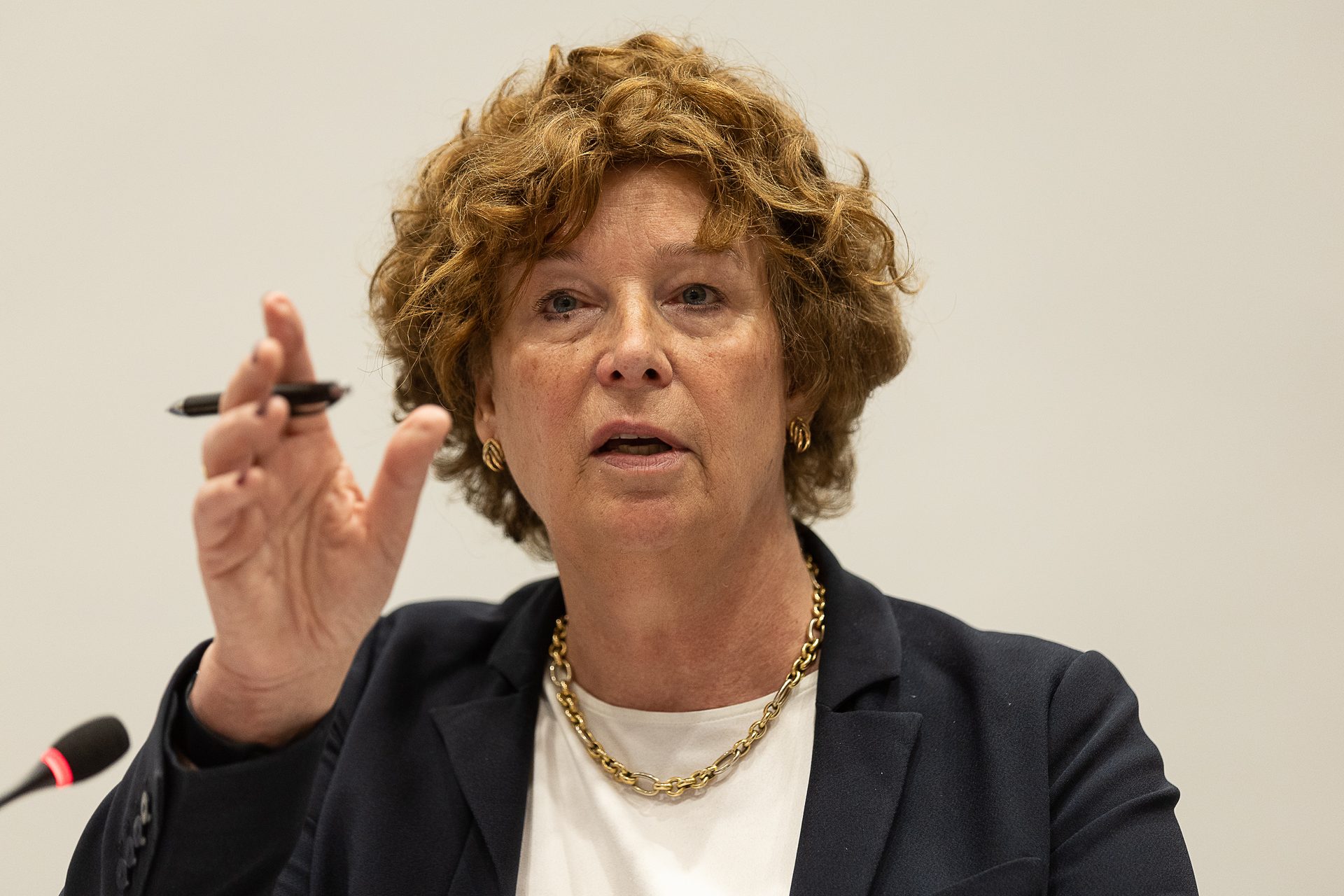Sunday's elections made it clear which parties were the biggest winners and losers, but what about the politicians themselves? Whilst some parties bombed, the public was more approving of some individuals. But who are Belgium's most popular politicians?
In polling booths on Sunday, voters were presented with digital or physical ballots that listed the political parties up for election in their constituency. These were divided into lists for each party. Every list includes their local candidates (someone who can be directly elected) and the candidate successors (who replace a candidate if they do not take their seat).
Voters could cast a "list vote" (choosing an entire party) to accept the order of candidates decided by the party. Alternatively voters can choose their candidates individually, referred to as a preferential vote. This makes it possible to vote for several people within one list (but not from different lists).
The candidates that come out top in the preferential votes are referred to as the "vote cannons" and are effectively the most popular politicians. So who are the most-favoured candidates in Belgium, and who did voters prefer on the regional levels?
Federal Parliament
On the federal level, the winner of the preferential vote was Bart De Wever, leader of the Flemish separatist party N-VA that won the most votes nationwide. De Wever himself gathered 255,446 preference votes in the Antwerp constituency, his home turf.
After De Wever, the most popular candidates were: Paul Magnette (leader of the French-speaking socialists PS) with 90,108 votes in the electoral district of Hainaut; and Georges-Louis Bouchez (leader of the French-speaking liberals MR) with 79,447. This departs from the party votes, in which MR did substantially better than PS, both on a federal level and in Brussels and Wallonia.
Annelies Verlinden, the Home Affairs Minister, was perhaps a surprise feature in the top 10, bagging third place in the list of Dutch-speaking politicians. The CD&V politician received 65,307 in the Antwerp constituency despite her party losing support.
Petra De Sutter of Groen came in sixth place with 64,716 votes. She was put forward as a favourite in East Flanders, which was also the only Flemish province where the Dutch-speaking Green party performed relatively well, particularly in Ghent.
Alexander De Croo might take some consolation in landing ninth with 61,309 votes. The list is concluded by the relatively unknown list leader of Vlaams Belang, Lode Vereeck, with 59,581 votes from Antwerp voters.

Petra De Sutter. Credit: Belga / James Arthur Gekiere
Among Brussels voters, a surprising candidate landed in first place on the Federal level: Nabil Boukili of the Belgian Workers Party PTB-PVD won 29,627 votes. He is followed by MR's Valérie Glatigny (25,021) in second place, Caroline Désir (PS) in third place with 20,924 votes, MR's Alexia Bertrand Alexia, who came 45th overall but fourth in Brussels with 20,528 votes. Evere's mayor and PS party member Ridouane Chahid (18,001) came fifth.
Brussels Parliament
The ranking looks very different in the Brussels elections: very few ministers made the top ten. Instead it was the list leaders of the French-speaking parties who scored best. The top 10 is almost entirely made up of French-speaking politicians while seven in ten candidates are women.
Koekelberg mayor Ahmed Laaouej (PS) was ranked first with almost 25,000 preferential votes. He is followed by David Leisterh (MR) with 20,315 votes. Françoise De Smedt (PTB) obtained 16,737 votes, putting her in third place. Soulaimane El Mokadem (PTB) came fourth and outgoing Foreign Minister Hadja Lahbib (MR) fifth.
Remarkably, some candidates who were ministers in the most recent Brussels Government performed worse than in 2019. Only the leader of the Dutch-speaking Green Party Groen, Elke Van den Brandt, was validated for her participation in government, narrowly making the top ten. She almost doubled the preferential votes she received in 2019 (4,320) to gain 8,361 on Sunday. Van den Brandt is also the only Dutch-speaking candidate in the top 10 in Brussels.
Outgoing Minister-President Rudi Vervoort (PS) received just 5,466 votes – one-third of his 2019 winnings (16,889). This could be due to his lower position in the list (from leader to position three). Outgoing Employment and Animal Welfare Minister Bernard Clerfayt (Défi) also saw his score cut by three – down from 14,672 in 2019 to 5,976 this year.
Flemish Parliament
The list of most-voted politicians in the Flemish elections again tells a different story. Tom Van Grieken, whose Vlaams Belang party came second regionally, secured the most preferential votes in the Flemish Parliament – more than 150,000 in the Antwerp constituency.
Unlike in Brussels, most people in the top 10 were holding government positions in the previous government. Former Flemish Prime Minister Jan Jambon (N-VA) came second with just under 100,000 preferential votes while Hilde Crevits (CD&V), the outgoing Flemish Welfare Minister, completed the top three with over 77,000 votes.
Fourth place went to Conner Rousseau, who did well despite stepping down as party leader in November 2023 after scandals revealed he had made racist comments and sexist remarks. A month later, he also quit as a Federal MP. Rousseau made his comeback in the 9 June elections securing 75,000 preferential votes, despite being at the bottom of Vooruit's list for East-Flanders.
Outgoing regional Environment Minister Zuhal Demir (N-VA) and Jo Brouns (CD&V), who was Flemish Economy Minister, also made the top ten, with 65,793 votes and 46,714 votes, respectively.
Walloon Parliament
In Wallonia, the Francophone liberal MR won the Walloon parliament with just under 30% of the votes. It was the first time MR beat the French-speaking socialists PS.
MR's rise is reflected in the most popular politicians – six of the top ten were on MR lists. But Socialist Party members also scored well, with first place being the outgoing regional Minister for Social Action Christie Morreale (almost 30,000 votes). She was followed by Thomas Dermine, former State Secretary for Science Policy (22,595 votes).
Dermine is closely followed by two MR figures, also former ministers: Willy Borsus and Valérie De Bue. Only one member of the Christian-Democratic party Les Engagés, which will be forming the Walloon government with MR, was included in the list; namely Vincent Blondel, who came 10th with almost 14,000 votes.

